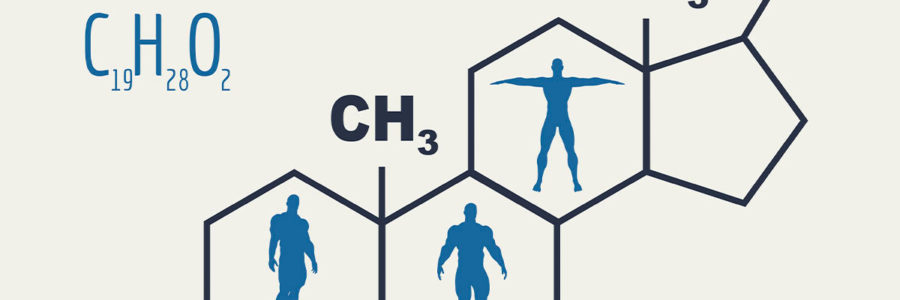
This article has been medically reviewed by Dr. Charles Penick, MD
Testosterone-boosting foods help the body maintain normal hormone production. Here are our favorite ones, plus foods that contribute to low testosterone levels. Learn more in our discussion here.
A troubling new trend is occurring today: decreasing testosterone levels in males. Low testosterone can impact both men and women, but it has recently become a significant health issue. Some men begin to lose testosterone starting at age 30, and research indicates that up to 40% of men over 45 have low testosterone levels caused by hypogonadism.1
What is Testosterone? | Testosterone Boosting Foods | Testosterone Killing Foods | Increase Testosterone Naturally | Final Thoughts
What is Testosterone?
Testosterone is a steroid hormone. It plays a pivotal role in developing male sex organs, deepening the voice, and pubic and facial hair growth during puberty. The hormone also assists in fat distribution, red blood cell production, and increasing muscle mass. Testosterone is also produced by women, albeit in smaller quantities than men. Its functions for women include the following:
- Bone strength
- Energy levels
- Strength
- Lean muscle mass development
- Libido and sex drive
Testosterone Boosting Foods
Some foods can help increase testosterone levels. Foods containing zinc, magnesium, vitamin D, and selenium are all believed to support testosterone levels. The top foods for increasing testosterone levels include the following:
Healthy Fats
Healthy fats help to stimulate the production of testosterone naturally. A study on male volunteers with no known health issues found that reduced healthy fat consumption reduced their serum concentrations of androstenedione, testosterone, and free testosterone.2
Top healthy fat foods include the following:
- Avocado
- Coconut Oil
- Walnuts
- Goat Cheese
- Yogurt
- Fish Oil
Oysters & Zinc
Zinc is an essential nutrient, which means the body can’t produce or store it. As a result, we obtain it through diet. Oysters are high in zinc, containing more of the nutrient than any other food per serving. Zinc deficiency is linked to hypogonadism in men, which reduces sex hormones in the body. Studies indicate zinc may help stimulate the production of serum testosterone levels in men.3
Ginger
Ginger is a spice that has been added to dishes and used as medicine for thousands of years. Studies are ongoing, but research indicates “ginger enhances semen quality and improves the main sperm parameters such as concentration, viability, motility, and morphology.”4
Magnesium Rich Foods
Magnesium plays a role in over 300 biochemical reactions in the body. Also, magnesium deficiency can result in reduced testosterone levels. Magnesium supplements increased free and total testosterone values in sedentary individuals and athletes.5 Top food sources of magnesium include spinach, dark chocolate, almonds, chia seeds, and oats.
Testosterone Killing Foods
While many foods can help boost testosterone production, some can also lower body levels.
The following popular foods may decrease testosterone:
Soy-Based Foods
Foods that tend to contain soy include the following:
- Baked goods (bread, crackers, cookies)
- Canned foods (tuna, meat, broth, soup)
- Low-fat peanut butter
- Infant formula
Soy contains phytoestrogens, a substance found in some edible plants. Phytoestrogens can impede testosterone production because they are structurally and functionally analogous to estrogens. In animal studies, the consumption of phytoestrogens impacted fertility, sexual development, and behavior.6
Dairy
Commercially grown cow’s milk contains large amounts of progesterone and estrogen. This is due to cows lactating through their entire pregnancy. Studies on men and children indicate that estrogens were absorbed in their bodies, which decreased testosterone secretion.7
Alcohol
Alcohol consumption can damage the Leydig cells located in the testes. These cells play a role in testosterone production and assist in maintaining fertility in adult males.
Sugar
Consuming foods high in sugar can cause blood sugar to spike, which causes testosterone levels to drop in response. According to the American Diabetes Association, men with type 2 diabetes are twice as likely to have low testosterone levels than men who do not have diabetes.8
Processed Foods
Many processed foods contain trans-fats. Trans fats tend to lower health fat, impacting testosterone production. A study on healthy males found trans fatty acids were “associated with lower total testosterone and calculated free testosterone concentrations” and “influenced testicular function.” 9
Increase Testosterone Naturally
In addition to eating the right foods, you can increase testosterone naturally with a few lifestyle changes:
Intermittent Fasting
Intermittent fasting consists of eating during a particular window of time. For example, one form of intermittent fasting is the 16:8 plan, which consists of not eating for 16 hours and only consuming foods during the remaining 8-hour window. In addition to regulating insulin levels and potentially decreasing the risk of having Type 2 diabetes, intermittent fasting can increase testosterone levels and positively influence Leydig cell function.10
Weightlifting
The physical exertion of strength training causes the body to increase testosterone and human growth hormone. A 12-week study on the effects of weightlifting on men between the ages of 23 and 63 found that “strength training can induce growth hormone and testosterone release, regardless of age.” 11
Good Sleep
Low testosterone levels may contribute to low energy levels, insomnia, and changes in sleep patterns. According to studies, testosterone levels are lower in men when experiencing sleep deprivation.12
Final Thoughts
Testosterone levels for both men and women are decreasing at alarming levels. Fortunately, the body can increase testosterone levels naturally with a few simple lifestyle changes.
Medical Disclaimer: This article is based on the opinions of The Cell Health team. The information on this website is not intended to replace a one-on-one relationship with a qualified healthcare professional and is not intended as medical advice. It is intended to share knowledge and information from the research and experience of the Cell Health team. This article has been medically reviewed by Dr. Charles Penick, MD, for the accuracy of the information provided. Still, we encourage you to make your own healthcare decisions based on your research and in partnership with a qualified healthcare professional.
Today’s Wellness Breakthrough
Stress is at an all-time high in the U.S. and beyond, especially for parents. And when it comes to hormone production, stress is the #1 cause of imbalance. Cortisol, your primary stress hormone, can block testosterone, suppressing libido and crushing energy and motivation.
Not only that, your natural production of testosterone diminishes with age. That’s why natural testosterone support is so critical (especially when you’re stressed).
This powerful formula contains herbs like the ancient Southeast Asian Tongkat root, which has been used for thousands of years to fight male infertility and combat cellular damage… And DIM, which helps flush excess estrogen and keep testosterone levels balanced. TruLibidoEnhance might be the only supplement you’ll find with this unique formula —specifically designed to support sexual desire, sperm concentration, and motility, as well as mood and energy.
Medical Disclaimer: This article is based upon the opinions of Dr. Daniel Pompa. The information on this website is not intended to replace a one-on-one relationship with a qualified health care professional and is not intended as medical advice. It is intended as a sharing of knowledge and information from the research and experience of Dr. Pompa and his associates. This article has been medically reviewed by Dr. Charles Penick, MD for accuracy of the information provided, but Dr. Pompa encourages you to make your own health care decisions based upon your research and in partnership with a qualified health care professional.
References:
- P Dandona and M T Rosenberg. A Practical Guide To Male Hypogonadism In The Primary Care Setting. Int J Clin Pract. 2010 May; 64(6): 682–696. doi: 10.1111/j.1742-1241.2010.02355.x. PMCID: PMC2948422. PMID: 20518947.https://www.ncbi.nlm.nih.gov/pmc/articles/PMC2948422/
- E Hämäläinen, H Adlercreutz, P Puska, (et al). Diet And Serum Sex Hormones In Healthy Men. J Steroid Biochem. 1984 Jan;20(1):459-64. doi: 10.1016/0022-4731(84)90254-1. [PMID: 6538617]. https://pubmed.ncbi.nlm.nih.gov/6538617/
- A S Prasad, C S Mantzoros, F W Beck, (et al). Zinc Status And Serum Testosterone Levels Of Healthy Adults. Nutrition. 1996 May;12(5):344-8. doi: 10.1016/s0899-9007(96)80058-x. [PMID: 8875519]. https://pubmed.ncbi.nlm.nih.gov/8875519/
- Saleem Ali Banihani. Effect Of Ginger (Zingiber Officinale) On Semen Quality. Andrologia. 2019 Jul;51(6):e13296. doi: 10.1111/and.13296. Epub 2019 Apr 22. [PMID: 31012134]. https://pubmed.ncbi.nlm.nih.gov/31012134/
- Vedat Cinar 1, Yahya Polat, Abdulkerim Kasim Baltaci, (et al). Effects Of Magnesium Supplementation On Testosterone Levels Of Athletes And Sedentary Subjects At Rest And After Exhaustion. Biol Trace Elem Res. 2011 Apr;140(1):18-23. [PMID: 20352370]. https://pubmed.ncbi.nlm.nih.gov/20352370/
- Sergei V. Jargin. Soy And Phytoestrogens: Possible Side Effects. Ger Med Sci. 2014; 12: Doc18. Published online 2014 Dec 15. doi: 10.3205/000203. [PMCID: PMC4270274]. PMID: 25587246. https://www.ncbi.nlm.nih.gov/pmc/articles/PMC4270274/
- Kazumi Maruyama 1, Tomoe Oshima, Kenji Ohyama. Exposure To Exogenous Estrogen Through Intake Of Commercial Milk Produced From Pregnant Cows. Pediatr Int. 2010 Feb;52(1):33-8. doi: 10.1111/j.1442-200X.2009.02890.x. Epub 2009 May 22. [PMID: 19496976]. https://pubmed.ncbi.nlm.nih.gov/19496976/
- American Diabetes Association. Low Testosterone. https://www.diabetes.org/resources/men/low-testosterone
- Lidia Mínguez-Alarcón,1,2* Jorge E Chavarro,3,4,5,* Jaime Mendiola, (et al). Fatty Acid Intake In Relation To Reproductive Hormones And Testicular Volume Among Young Healthy Men. Asian J Androl. 2017 Mar-Apr; 19(2): 184–190.Published online 2016 Oct 28. doi: 10.4103/1008-682X.190323. PMCID: PMC5312216. https://www.ncbi.nlm.nih.gov/pmc/articles/PMC5312216/
- S Röjdmark. Influence Of Short-Term Fasting On The Pituitary-Testicular Axis In Normal Men. Horm Res. 1987;25(3):140-6. doi: 10.1159/000180645. [PMID: 3106181]. https://pubmed.ncbi.nlm.nih.gov/3106181/
- B W Craig 1, R Brown, J Everhart. Effects Of Progressive Resistance Training On Growth Hormone And Testosterone Levels In Young And Elderly Subjects. Mech Ageing Dev. 1989 Aug;49(2):159-69. doi: 10.1016/0047-6374(89)90099-7. [PMID: 2796409]. https://pubmed.ncbi.nlm.nih.gov/2796409/
- Rachel Leproult, PhD; Eve Van Cauter, PhD. Effect of 1 Week of Sleep Restriction on Testosterone Levels in Young Healthy Men. JAMA. 2011;305(21):2173-2174. doi:10.1001/jama.2011.710. https://jamanetwork.com/journals/jama/fullarticle/1029127


